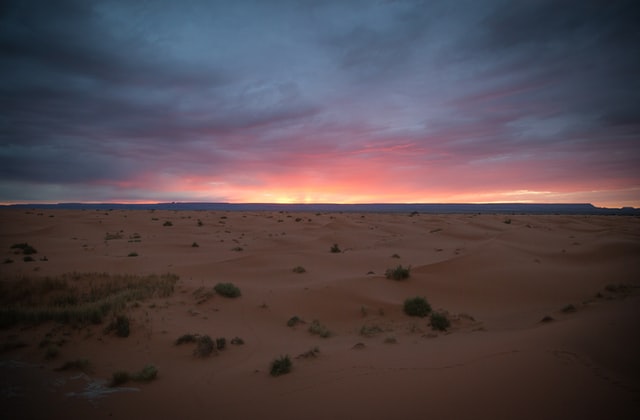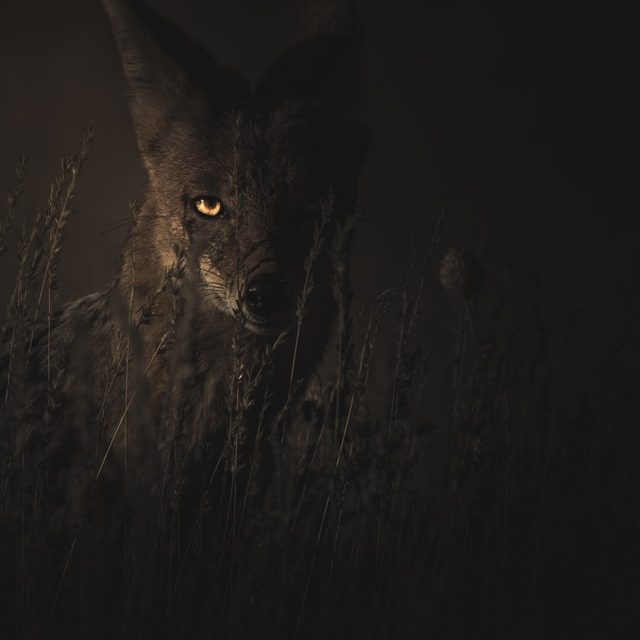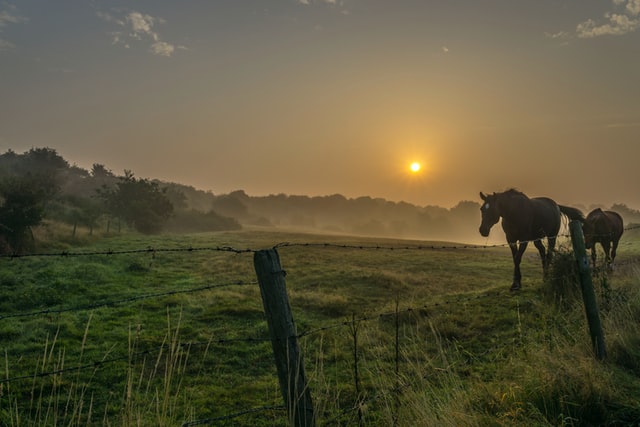This week I completed the first draft of a new ending for The Compromise. I can now say with certainty that it is a tragedy, but one laced through with possibility– both grounded and transcendent. The sisters have traveled on their contrasting paths and are gradually brought together in the final scenes. Both are young and naive, with that quixotic ambition we adore in youth. Maturity, I propose, requires our acceptance of life as it is and then perseverance towards a creative relationship with what can be.
Image: Wilde Sommerwiese. Photo by Niklas Hamann on Unsplash
In the contrasts of the sisters’ characters, I seem shamelessly indebted to Jane Austen‘s Sense and Sensibility (1811). The Compromise does not end in happy weddings as do so many coming-of-age novels, such as Alcott‘s Little Women (1869). In these unions, each has its own elements of compromise. I admit, it was the first vision of my novel to end this way. There is still a marriage indicated at the end, but one deeply compromised by tragedy. I am also influenced by Henry James‘ Portrait of a Lady (1881). This coming-of-age story steps past romance towards a variation of the complicated lives of women.
The evangelical professor Beth Allison Barr uses historical analysis to challenge contemporary claims of scriptural gender roles. Read the article in The New Yorker.
In tragedy, the catharsis, the transformation takes place in the reader. If successful, after the book closes, the reader quickly notices emotions, assesses sympathies and affirms or disconfirms networks of values and beliefs. The reader learns what the writer only pointed to.
I have faithfully and courageously built my fictional world and this gives me satisfaction. Fiat Lux.
The positive change that we love in stories may not be as satisfied, however. There are kind heroes and ignorant fools, surprise twists in stock story elements. But the events that intensify the characters’ experience in the end seem amoral, caused by mistaken identity, brought about by chance, too complicated to anticipate, and without intention. The siblings do not end slavery or unite in a vision of equality. This could be a failure of story, or compromise is what humans must do in dialogue with a feckless universe. Thus we persevere towards truth without hope of success. This we know if we have tried to save what could not be saved even when it took all we had. We simply don’t know if we are heroic or villainous. We might even try to speak inside a regime of silence or find a way through no man’s land.

“[The] dark night could be more accurately described as the meeting of two immense storm fronts, the squally vulnerable edge between what overwhelms human beings from the inside and what overpowers them from the outside”
David Whyte, “Crisis” in Consolations, 2015
Journey to Maturity
In the final scenes of the novel, Mariah and Eliza begin a journey that will test their maturity and at the same time, interrogate their society. This journey is not a struggle with themselves alone. They contend with manipulation and abuse, even from those they love and respect. Caught in a dilemma, Mariah has been a courier and a decoy in the running of guns. Without her knowledge, Eliza is used as bait for attempted murder and fratricide coverup. Over the course of the novel, each has taken hits and learned to adapt or hold her ground. The novel ends as each comes to terms with events that test her power and undermine her vision.
How each comes to terms with the dark night is the story that ends the novel.
Mariah uses self-effacing humor and story-telling to get through some predicaments. She is stopped by officials on Commercial Street, asked to pay a wharf tax and submit to a search.
“We’re asking a tax and looking for contraband. What’s your cargo, Miss?”
I wanted to jump off and run, but I sat there under the claws of fear. Of course my cargo of arms was contraband, and I had only four dimes in my bag to pay the tax. One was spent on whisky.
“I asked, your cargo!”
This stirred my self preservation. My best tactic was always the hick from the sticks. “Sir, this here’s the cut-up remains of our Bessie packed in sawdust. She’s a butcher hog, I reckon. That’s my cargo.”
“You reckon your cargo?” The men laughed. One said, “We double the tax for hogs named Bessie.”
Sometimes cleverness does not save the day. After delivering the contraband, the sisters travel west across a floodplain. Pregnant, addicted, tricked, abused, and neglected, Eliza’s life-force is failing. Mariah provides water and a moment of kindness when there is little else to give.
“You need water, Lizzie.” She sipped from my flask but refused more. “I know it hurts to pass, but it's a way to get better. Warm tea would help.”
....
“You rest. That’s why it's called a wagon bed.” To the south was the outline of hills big enough to hold a few trees but no water. We heard the yapping of wild dogs in that direction. I checked my knife on the bench beside me. Hunched boulders, scraggly trees, and the dogs gave strange comfort in a wasteland.
The Compromise, “West to the Sunset”
In contrast, Eliza has escaped into a dream world, one that overtook her before she understood the consequences. Withdrawal from opium gives her instability and pain. An infection gives her shame. Trauma will bring on early labor.
Her mouth twisted with the ache in her belly and the clenching in her arms and legs. Fire ran from the top of her head through her chest and back. She retched but nothing came up.
The burn down below flared. What had she done to deserve this? The angels became demons. They turned on her screeching, dashing her head, and clamping her down. Filling the sky, they jeered at her. You deserve this pain. She saw among the demons the powdered faces and reddened lips of Clancy and the Frenchman. Boswell’s dark eyes bled into whiteness. Filthy girl. George held her down, spitting on her cheek. Foul whore.
She touched her mounded belly and let her hands fall limp. Her body was a bad place where new life should fear to come. Her heart slowed. The cold numbed the pain.
These cruelties became the reality against which a generation of poor women had to plot or adapt.

Denied by the Law
Going west into the sunset was a setup. Eliza is abducted at gunpoint and wretched truths are revealed. Women were trapped by laws in the 19th century that denied them the right to their bodies’ integrity and custody of their children. These were the rights for which activists rallied. Only later was it the vote. Prostitution was legal and widely practiced in Missouri and other states, which led to disease, unsafe abortion, and death. Women had few rights to themselves or each other. These cruelties became the reality against which a generation of poor women had to plot or succumb.
These were the Fowler brothers, my long-lost fiancé George and Eliza’s husband in holy wedlock Richard Spider-Hands. I'd have thought they came in kindness but for the pistol George aimed at me.
“Mariah, girl,” said George, “step down from the wagon.” He rode up on my left side, spotted Eliza crouching under me, and said, “She’s here.”
Richard dismounted and put down the lantern. Then he took the lead mule’s reins.
George kept his pistol pointed at my head and said, “I know you got a knife in your right hand, so put it down and step out like a good girl. You won’t get hurt. We’ve come for my brother’s wife, and what she’s got inside is mine.”
The Compromise, “West to the Sunset”
Soon Mariah is utterly alone on a dark wasteland. She was powerless to stop the abduction. Her knife and tinderbox are gone. Her imagined future married to George ended at gunpoint. Still, she watches and learns. Of course small things matter.
I stumbled across dry mud to the gravel road stretching for miles on a wide floodplain. There was nothing more to see except a few stars above and a low rack of clouds to the east. When the clouds unsheathed the sickle moon, there was enough light to see rolling grassland and the faint glimmer of a lake to the north. The dogs behind me stayed quiet until I got to the road. They gave me the respect of one predator for another.
Sure enough, my knife had fallen onto the gravel. I saw it like it was calling my name. Soon after, I stepped on something soft. It was my right glove. My fingers would not freeze. Thank you, Lizzie. I bowed down to cry without tears and then walked west with no plan except to follow my sister, who could be miles ahead of me.
The Compromise, “West to the Sunset”

She is our progenitor, I claim, the maker of unseen history.
Immigrant and Indigenous
Mariah keeps her head as a pioneer woman must. She supports prayer with courage and practical know-how. She is our American progenitor, I claim, the maker of unseen history. Like many people on this land, she is part immigrant and part indigenous. Unable to change unjust laws, she accepts her situation and looks for opportunities. With gratitude and perseverence, she builds a relationship with nature, within her body and with the land.
Robin Kimmerer, an indigenous writer, educator, and scientist, has given precious fuel to this character development.
“Plants know how to make food and medicine from light and water, and then they give it away.”
“It was through her actions of reciprocity, the give and take with the land, that the original Immigrant became Indigenous.”
Robin Wall Kimmerer, Braiding Sweetgrass (2013)

They are the sweet and bitter fruits of our culture, tended and stolen over generations.
The sun rises. She meets a friend at the crossroads. Mariah makes a plan. The plan is based on beliefs in how the world works: that, once informed, a woman can choose her destiny, that men and women of any social status have equal voice in decision making, that a woman’s talent and education can move her beyond object status, that hard work is rewarded, that love will prevail, that the young do not die. How many of us operate under these assumptions? They are the sweet and bitter fruits of our culture, tended and stolen over generations.
If these assumptions fail to prosper our lives, yet our bodies live, we try again and help others do the same. If we stop women from prospering on their own terms, and if we undermine the natural processes around us and within us, we fail ourselves. Likewise, if we arrogantly reduce others to our institutional designations for them, we limit the gifts they can give and betray what moves us forward. That is ignorance and systematic defiance of the healing power of nature.
“Justice delayed is justice denied.”
Legal maxim
Eliza also has a plan based on her young woman’s beliefs: that the beautiful sunrise is a good omen, that she has guardian angels, that others should recognize her value, that her prince will come on a big horse to sweep her away. In desperate irony, she and her beliefs are swept away. But then it is not a failure of human love.
“Vulnerability is not knowing victory or defeat, it’s understanding the necessity of both; it’s engaging. It’s being all in.”
Dr. Brené Brown
One of the most interesting elements in the final-final scene is the symbol of light. Eliza, bound for heaven, enters into it and Mariah, literally bound to her work on earth, is inseparable from it. She is so far in that she can’t be seen. These metaphors could be related to deep cultural ideas about faith. The sisters are functioning at the intersection of two traditions: Abrahamic and Dharmic. This understanding is supported by my recent readings on Buddhism by Meido Moore. What goes beyond typical perception, sometimes known as the transcendent, does not have much capital in a materialistic society unless somebody points it out. The American Transcendentalists were among those who did, and they influenced the teachers of today. Other traditions have deeper understanding.
“In the Ultimate Vehicle, you do as you will and there is nothing to observe. It is a wonderful thing, and it is very rare in this world.”
Shido Bunan Zenji (1603-1676)
The Novel’s Theory
Plans fail and beliefs are questioned. That is the work of living. I cannot easily articulate the forces against the generosity of nature. The novel presents a theory. Others may have simpler words and surer knowledge. Maybe no force exists outside at all. When compassion brings the world inside, we look within to learn. In the end, Mariah is not without friends, not without knowledge or hope. She sits at the crossroads holding a dying man in the morning light.
She has braided lives to be functional and generous as I have braided this fiction.
She does the work and we can have no doubt that she will continue to try. She has braided lives to be functional and generous as I have braided this fiction. The long grass was rooted and then it was cut and put to use.
“After kensho we still must practice to fully cut the habitual roots of delusion and suffering once and for all, using the wisdom of awakening itself as the blade.”
Meido Moore Roshi, Korinji Monastery, Wisconson
